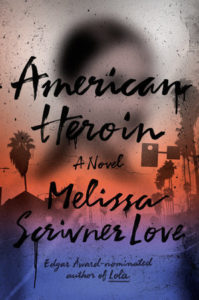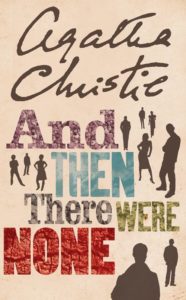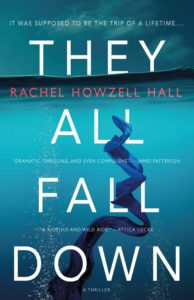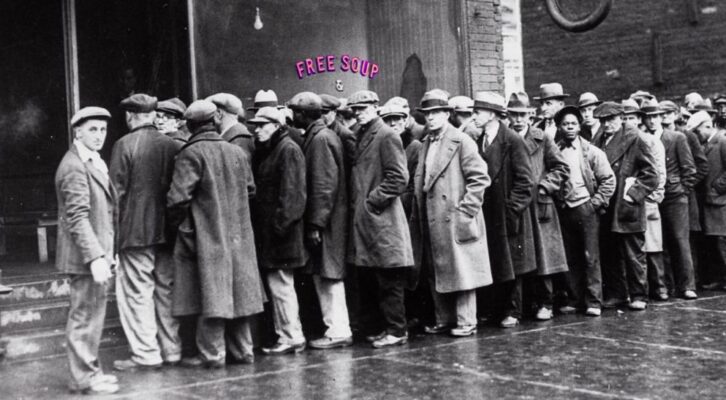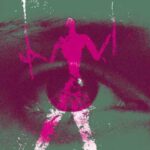People don’t insta-leap head first into cruelty or crime. We baby step our way there. We have reasons and stories and excuses that allow us to creep all the way down to hell without recognizing the road we’re on; the most dangerous human superpower is our endless ability to justify. I love it when this truth seeps into fiction, because it creates such realistic villains and anti-heroes. When it’s done well, I sometimes even find myself rooting for them.
In Never Have I Ever, Amy Whey is a happily married working mother. She bakes cookies for new neighbors and runs a book club with her best friend. She is definitely the protagonist, but she is a deeply flawed one. When Roux invades her tight-knit community, we quickly learn that Amy is not who she seems. Roux begins a game of cat and mouse, threatening to expose Amy’s dark past if Amy doesn’t pay.
The fun starts because Amy is actually a cat, too, only in mouse clothing. Amy and Roux would get the same result if they took a personality test like Enneagram or Meyers-Briggs, and the sorting hat would shove them both right into Slytherin.
If you asked Roux, she might say she’s hero of the story. Every move she makes is embedded in a narrative she’s forged to justify her life. But Amy has deep empathy for other human beings. She’s made choices I’m not sure Roux is capable of understanding, finding her own way to make amends. She’s not perfectly reliable, but I root for her anyway. I hope readers will as well.
Here are eight books that taught me that the best villains and antiheroes have no idea they are the bad guy.
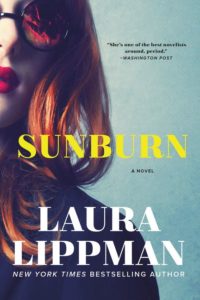
Sunburn, by Laura Lippman
Laura Lippman vivisects her characters’ psychology in real time. I could have honestly chosen any number of Lippman books for this list, but my current obsession is this steamy, noir-soaked, almost love story. Polly and Adam are both liars, but it’s Polly who sticks with me. While reading, pay attention to the gaping spaces between what she thinks about her children, what she says about them, and what she’s ultimately willing to do for them.
Lola and American Heroine, by Melissa Scrivner-Love
At the center of Melissa Scrivner Love’s two-book series is Lola Vasquez, a cold-blooded murderer that I genuinely stan. Yes, she’s ruthless, she’s pragmatic to the point of mental illness, and she never met a compromise she wasn’t willing to shoot between the eyes. She’s also loyal, protective to a fault, smart, and admirably tough. Love makes Lola’s world so palpable and viscerally true that I come to believe I might make some of the same moral choices, were I in her shoes. I can’t wait for book three.

Red Dragon, by Thomas Harris
Thomas Harris introduces Hannibal Lector in this novel. Lector is pure evil, and his power in this book and the brilliant follow up, The Silence of the Lambs, is that we have no idea why he is the way he is. He has a code of ethics that seem to involve good manners, and otherwise the death he brings is horrifying in its randomness. But there’s another killer in this book, and we do see exactly how Francis Dolarhyde, aka the titular Dragon, came to be a serial killer. The parts of this book that have stuck me over years are Dolarhyde’s love story and his internal battle with the dragon. I’m terrified of the Dragon; Dolarhyde broke my heart.
And Then There Were None, by Agatha Christie and They Fall Fall Down, by Rachel Howzell Hall
Agatha Christie gathers a herd of truly deplorable people on an island to face a great and terrible reckoning in this classic. She somehow manages to avoid rending my suspension of disbelief in spite of the farfetched ways the deaths play out, mostly because Christie is so adept at head hopping. Each character explains their sins in their own words, and none has sinned in a vacuum. I have flashes of sympathy. For most of them, anyway. I adored Rachel Howzell Hall’s retelling, which changes the POV to give us a main narrator that I almost, almost root for, and she updates the tale to give her sinners thoroughly modern motives. Murdery good fun.
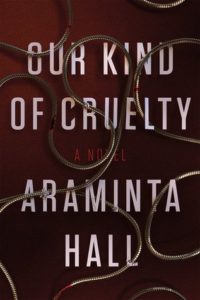
Our Kind of Cruelty, by Araminta Hall
Great Britain’s answer to Caroline Kepnes’ hypnotic, nihilistic You, this one is not for the faint of heart. As Mike stalks his ex toward a conclusion that is inevitable, shocking, and surprising in equal parts, it’s very clear that he believes he is telling us a love story. It’s not fair to call him an unreliable narrator; he thinks his tale is gospel. Araminta Hall also gives us a window into the world that formed this monster, and I was willing to go with him down every dark and darker path he chose.
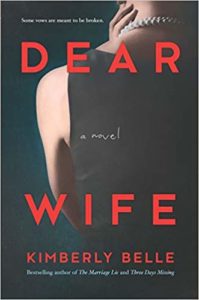
Dear Wife, by Kimberly Belle
A woman on the run, a man with a missing wife, and a detective determined to uncover the ties that bind them together. There’s a marriage at the heart of this book, the kind where only one of the two people who have formed it will escape alive. It’s the abusive husband who interests me the most; I believe his story. He’s so convincing, I buy a lot of his justifications. But Belle and the truth are both clever-er than that, and this husband is not all that he seems.



